Vehicle inspection for trucks is a mandatory procedure to ensure technical safety and environmental protection. This article provides detailed information about the latest truck inspection regulations in 2025, inspection deadlines, costs, and implementation guidelines.
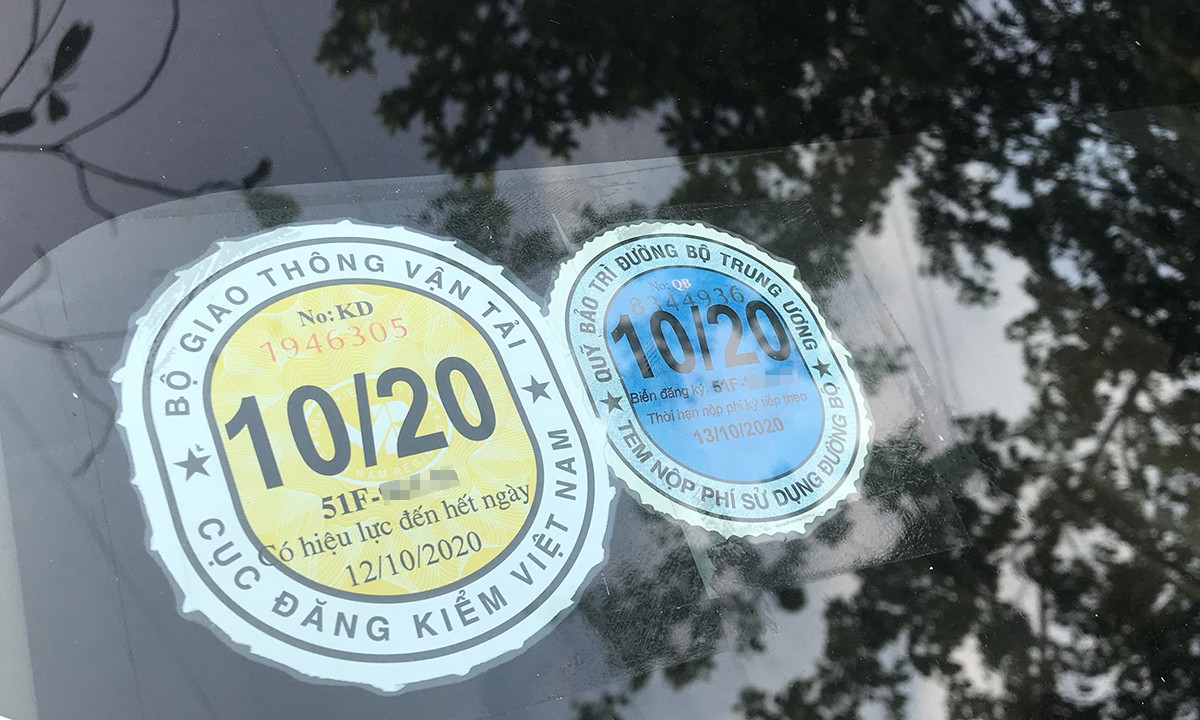 Vehicle inspection center in Vietnam
Vehicle inspection center in Vietnam
Postponement of Inspection Deadlines and Priority for Overdue Vehicles
According to Circular 08/2023, over 1.9 million cars with fewer than 9 seats, not engaged in transportation business, have had their inspection deadlines extended by 6 months. However, this extension does not apply to vehicles with inspection certificates or stamps that expired before June 3, 2023. Approximately 156,000 vehicles that expired before June 3, 2023, must still visit inspection centers to obtain new certificates and stamps.
The Vietnam Register Department has requested inspection centers to prioritize inspections for vehicles that have expired but have not been inspected, vehicles with appointment slips, and vehicles used for transportation businesses. This aims to ensure people have safe vehicles for transportation, and transportation businesses can quickly put vehicles into operation, minimizing losses for society. After the Circular was issued, the Vietnam Register Department provided online guidance to inspection centers nationwide to implement Circular 08/2023. Vehicles eligible for certificate issuance but unaware of the information can check the Vietnam Register Department’s website to print the certificate without bringing the vehicle for inspection.
New Regulations on First-Time Inspection Exemption for Trucks
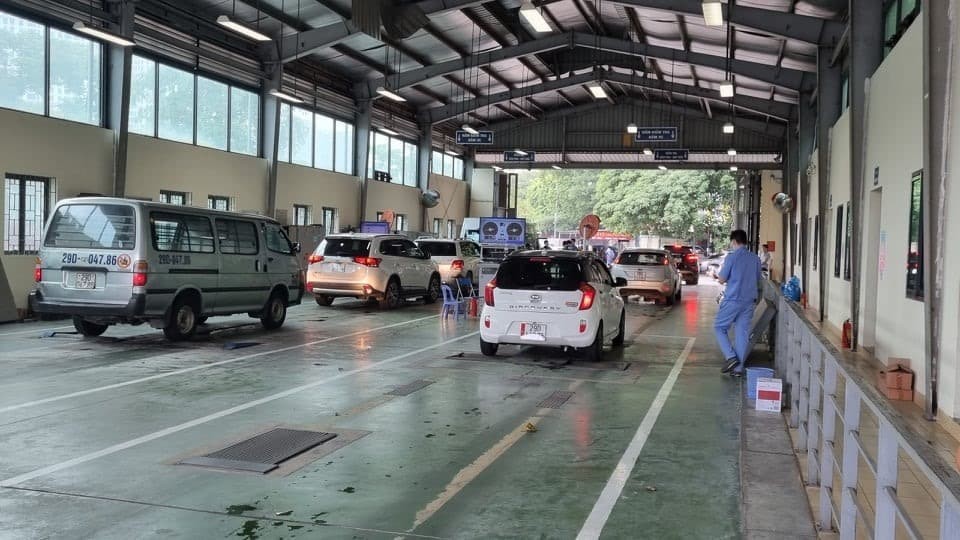 Trucks waiting for vehicle inspection
Trucks waiting for vehicle inspection
The new circular from the Ministry of Transport clearly stipulates the exemption for first-time inspections: Inspection units will base on the Ex-factory Quality Inspection Certificate or the Certificate of technical safety and environmental protection quality of imported motor vehicles to create vehicle records, manage, store, and issue Inspection Certificates and Stamps without having to perform vehicle inspection and evaluation.
In cases where motor vehicles have already been issued an Inspection Certificate and Stamp for the first time, re-issuance will be refused. In cases where motor vehicles only have an Appointment Letter for Vehicle Registration Certificate issuance, the inspection unit will issue the first Inspection Stamp and an Appointment Letter to return the Inspection Certificate to the vehicle owner. When the vehicle owner presents the Vehicle Registration Documents, the inspection unit will photocopy these documents to store in the vehicle file and return the Inspection Certificate. This regulation aims to clarify the responsibilities of inspection centers, ending the situation of refusing to provide services for vehicles exempt from first-time inspection.
Responsibilities for Vehicle Maintenance and Registration Methods
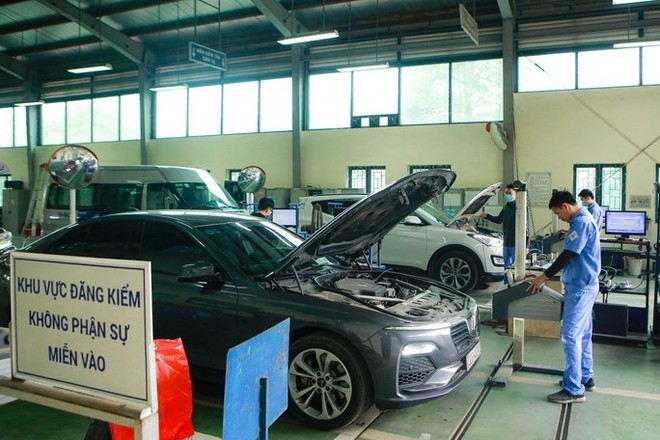 Online vehicle inspection registration interface
Online vehicle inspection registration interface
The Circular also clearly stipulates the responsibilities of vehicle owners in maintaining and repairing to maintain the technical condition of the vehicle, and to be responsible under the provisions of law for the act of putting vehicles that do not ensure technical safety and environmental protection into traffic.
Regarding vehicle inspection registration methods, inspection units accept registrations through various forms: in person, by phone, website, and online registration applications. Inspection units must issue warnings on the inspection management program about defects of vehicles that failed the first inspection so that other units can pay attention to careful inspection during re-inspection, helping to improve the efficiency of inspection work.
First-Time Inspection Exemption for Newly Purchased Trucks
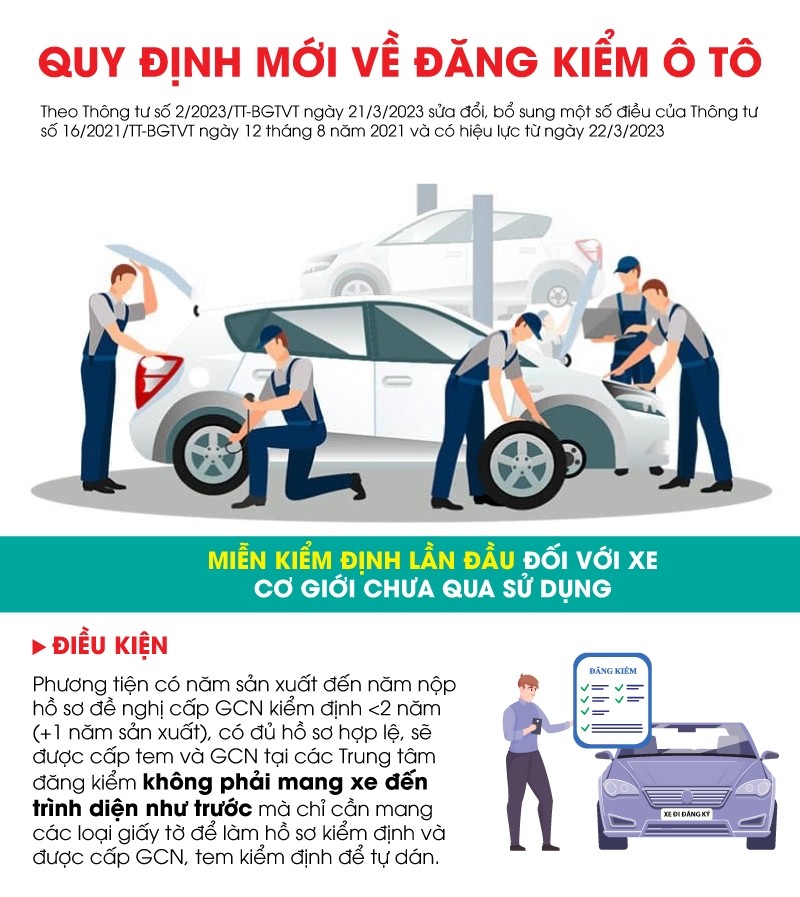 New truck models at a dealership
New truck models at a dealership
According to Circular 02/2023/TT-BGTVT, unused motor vehicles, with a production year up to the year of submitting the application for an Inspection Certificate being less than 2 years and having sufficient valid documents, will be issued stamps and certificates at inspection centers without having to bring the vehicle for presentation. This Circular amends and supplements several articles of Circular No. 16/2021/TT-BGTVT regulating technical safety and environmental protection inspection of road motor vehicles.
Vehicle Inspection Deadlines for Trucks Under Latest Regulations
Based on Appendix 05 of Circular 02/2023/TT-BGTBT, truck inspection deadlines are regulated from March 22, 2023, as follows: Trucks, specialized vehicles, tractor trucks produced up to 7 years; trailers, semi-trailers produced up to 12 years: initial cycle of 24 months, periodic cycle of 12 months. Trucks, specialized vehicles, tractor trucks produced over 7 years; trailers, semi-trailers produced over 12 years: periodic cycle of 6 months. Modified vehicles: initial cycle of 12 months, periodic cycle of 6 months.
Vehicle Inspection Costs for Trucks
Vehicle inspection costs for trucks depend on the vehicle’s tonnage. Trucks with a permitted cargo weight for traffic participation of over 20 tons have a fee of 570,000 VND. Trucks with a permitted cargo weight for traffic participation of over 7 tons to 20 tons have a fee of 360,000 VND. In addition, the cost of issuing an inspection certificate is 40,000 VND.
Guidance on Implementing Reduced Inspection Cycles
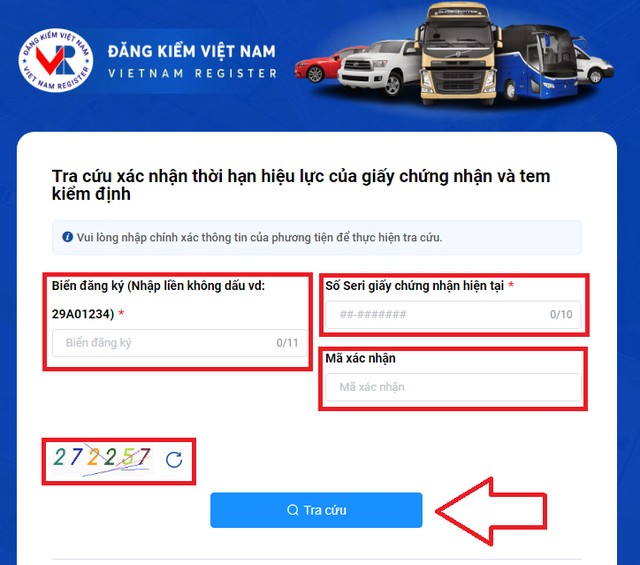 Website interface for checking vehicle inspection extension
Website interface for checking vehicle inspection extension
Image: Website for checking vehicle inspection extension.
Vehicle owners can check vehicle inspection extension information on the website of the Vietnam Register Department (vr.org.vn). Enter the license plate, serial number of the inspection certificate, and verification code to check. If the certificate is eligible for extension, the system will display the results and a confirmation of inspection information. Vehicle owners can print this confirmation to use when participating in traffic.
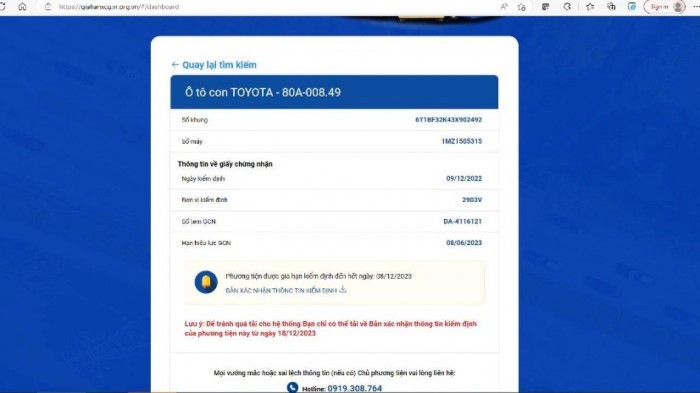 Example of vehicle inspection extension confirmation document
Example of vehicle inspection extension confirmation document
This article has provided an overview of vehicle inspection for trucks. Understanding the regulations and correctly following inspection procedures will help vehicle owners avoid legal troubles and ensure safety when participating in traffic.

